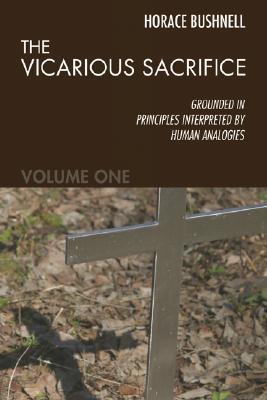- Bible
- Read the Bible
- Bible Versions
- Verse of the Day
- Reading Plans
- Verses by Topic
- Books of the Bible
- Bible Images
- Study
- Commentaries
- Concordances
- Dictionaries
- Encyclopedias
- Sermons
- Bible Atlas & Maps
- BP Wiki
- Devotionals
- Today's Devotionals
- Light of the World
- All Devotionals
- Inspirational Quotes
- More
- Picture Quotes
- Videos
- Inspirational
- Bible Study
- What The Bible Says
- Bible Q&As
- Daily Bread
- Bible by Genre
- Bible Stories
- Random Bible Verse
- Community
- Store
Here Bushnell contends for what has come to be known as the moral view of the Atonement, as distinct from the governmental, penal and satisfaction theories. His moral view of the Atonement is grounded in principles of universal obligation and universal vicariousness, later modified by the idea of God as propitiating himself in the forgiveness of the sinner. In Bushnell, God's sympathetic participation in the distortions of sin is a primordial fact. But the man Jesus unambiguously manifests this divine sympathy at the level of one human being. Since it is the very nature of sin to be bound to the world of sense, there must be some point in the world that unambiguously shows forth this divine sympathy. This point is made in Jesus and his cross. The cross of Christ represents the eternal suffering of God - a suffering born of his sympathy. The resurrection represents the perpetual endurance of God's love in spite of this suffering. It represents God's absolute adherence to the law of his nature, an adherence that he accomplishes even at great cost. In this endurance and this obedience, the law of God's nature is fulfilled. The relational law of love that man has trampled and insulted in the Fall, God has upheld. Such a supreme and inexhaustible love would lead ultimately to such a great suffering as was his death. For Bushnell, real redemption involves the subjective acceptance by man of God's love.
BUY NOW
Paperback, 822 pages
Published March 17th 2004 by Wipf & Stock Publishers (first published 1866)
© 2024 Bibleportal.com All rights reserved.

Horace Bushnell was an American Congregational clergyman and theologian. Bushnell was a Yankee born in the village of Bantam, township of Litchfield, Connecticut.
He graduated at Yale in 1827, was literary editor of the New York Journal of Commerce from 1828–1829, and in 1829 became a tutor at Yale. Here he initially studied law, but in 1831 he entered the theology department of Yale College.
In May, 1833 Bushnell was ordained pastor of the North Congregational church in Hartford, Connecticut, where he remained until 1859, when due to extended poor health he resigned his pastorate. Thereafter he held no appointed office, but, until his death at Hartford in 1876, he was a prolific author and occasionally preached.
... Show more